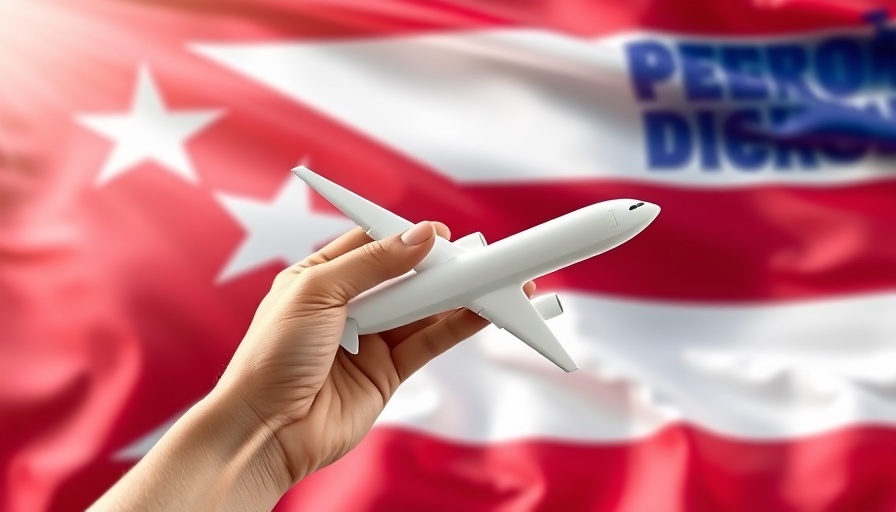
The Rise of Sustainable Tourism in the Greater Mekong Subregion
The economic recovery in the Greater Mekong Subregion is not just about increasing visitor numbers; it's about redefining travel in a way that prioritizes environmental stewardship and cultural preservation. In the first half of 2025, tourist activities demonstrated a notable increase, particularly in Vietnam and Lao PDR, marked by the recognition of the Phong Nha – Ke Bang and Hin Nam No as a transboundary World Heritage site. This exemplary act is a testament to the commitment of both nations to protect their natural and cultural heritage while leveraging tourism as a vehicle for societal improvement.
Why Sustainable Travel Matters Now More Than Ever
For travelers seeking a deeper connection with the world, sustainable travel offers a transformative experience. As awareness around climate issues grows, there is an increasing demand for journeys that leave a positive impact on communities and ecosystems. Sustainable tourism is no longer an option; it’s a necessity for preserving cultural and natural resources for future generations. The Greater Mekong Subregion presents a unique opportunity for eco-conscious travelers to explore rich biodiversity while supporting local economies.
Connecting People Through Responsible Travel
The Mekong Tourism Coordinating Office (MTCO) emphasizes that peace, collaboration, and connections between individuals are central to fostering a positive travel experience. Travelers are invited to engage with local communities, learn their stories, and participate in cultural traditions that reflect the heritage of the region. This participative approach not only enriches the visitor experience but also empowers locals, ensuring that benefits from tourism are widely distributed.
Future Predictions: Emergence of Eco-Friendly Trends
Looking ahead, industry experts predict a surge in demand for eco-friendly accommodations, local guides, and nature-based tours. Travelers are increasingly seeking unique experiences that align with their values. Trends such as voluntourism—where travelers contribute to community projects while visiting—are on the rise, allowing travelers to enhance their journey by creating lasting change in the places they visit.
Benefits of Choosing Ethical Tourism
Ethical tourism offers multifaceted benefits for travelers and the destinations they explore. By supporting businesses that prioritize sustainability and community involvement, travelers contribute to conservation efforts and ensure that cultural heritage remains intact. Additionally, ethical tourism fosters economic resilience in developing regions, a crucial factor for communities striving for growth in the post-pandemic world.
Can You Make a Difference While Traveling?
Incorporating just a few sustainable practices can significantly enhance your travel experience. Opting for local transportation, eating farm-to-table meals, and avoiding single-use plastics are simple steps every traveler can take. Furthermore, choosing to stay at eco-friendly lodgings not only reduces your carbon footprint but often results in unique accommodations that showcase the region’s culture.
Engaging with Local Communities: A Traveler's Perspective
As travelers, we have the power to transform our journeys into platforms for change. During my trip to Vietnam, I participated in a community cooking class, where I learned not only about the local cuisine but also about sustainable farming practices. This experience allowed me to leave with not just memories, but skills and knowledge that fostered a deeper appreciation for the culture and its people.
Common Misconceptions About Sustainable Tourism
One common misconception is that sustainable travel requires a higher budget. However, many eco-friendly options, such as hostels and local transport, can actually be more cost-effective than conventional tours. Moreover, the emotional satisfaction and connection you foster from choosing ethical tourism can make the experience far richer than just ticking off tourist spots.
Practical Tips for Sustainable Travel
- Research your destination's environmental policies before visiting.
- Support local artisans by choosing handmade goods over mass-produced souvenirs.
- Be mindful of the wildlife; do not engage in activities that exploit animals.
- Invite others to join you in protecting the environment by participating in beach clean-ups or tree planting initiatives.
In a world increasingly aware of its ecological footprints, embracing sustainable travel practices is not merely beneficial; it is imperative. The upcoming months in the Greater Mekong Subregion signal a hopeful transition toward responsible tourism that prioritizes the health of the planet and the well-being of local communities.
So, as you plan your next adventure to this vibrant region, consider how you can contribute positively to the places you visit and the lives you touch. Let’s make our travels not just about discovery but about responsibility—embracing the joy of exploration while nurturing the world we inhabit.
 Add Row
Add Row  Add
Add 




Write A Comment